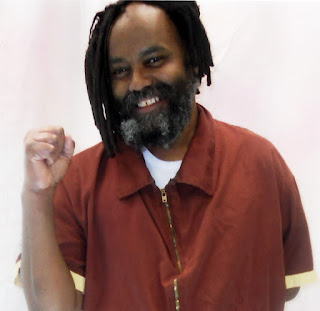[col. writ. 5/27/14] © ’14 Mumia Abu-Jamal
In West African societies, a Griot holds a special, almost sacred place in the life of the nation.
That’s because he is one who holds in memory the history of the nation, its battles, its struggles, its kings and its councilors, He sings such tales of the nation’s past, and is thus, a teacher.
His life’s memory is so precious that when he dies, he is not buried, but placed in the hollow of a tree, to stand; as the nation stands.
A legendary historian – and figure of history – Dr. Vincent Harding, has become an ancestor.
In his youth he was an assistant of Rev. Dr. Martin Luther King, Jr., and he had so much clarity and influence that he wrote one of King’s most controversial and groundbreaking speeches: the radical oration of Riverside Church, where King denounced capitalism, racism and the War in Vietnam.
Dr. Harding wrote: There is a River; The Black Struggle for Freedom in America, a beautifully written work of a man who played an important role in that struggle.
His writing is so passionate that one could not help but be engaged in the flow of his narrative. He also wrote The Inconvenient Hero, a work on Dr. King which shows his struggles, his growth, and his betrayal by those who claimed to follow him.
Dr. Harding, when a young scholar/activist, helped found the Institute of the Black World (IBW), which published pamphlets, articles and books on the struggles facing Black people, and of the growing, burgeoning Black Power Movement.
The IBW did a direct-mail newsletter, Monthly Review, and a newspaper column called “Black World View”, which addressed the institute’s views on the nation and the African world.
With his wife, Rosemarie, Vincent left Chicago in 1960 to establish the Mennonite House in Atlanta, a place for rest, renewal and reflection on anti-war ideas during the early years of the anti-war movement.
Rev. Dr. Vincent Harding was a Griot, telling the tales of the Black Nation. His instrument was his keen mind, his typewriter and his books, written with the loving lyrics of Black Country gospel.
He returns to the Essence: but his sweet music of the history of Black resistance continues to resonate.
–©’14maj

